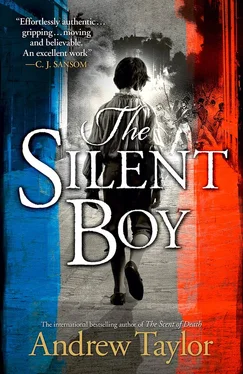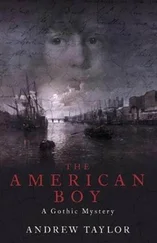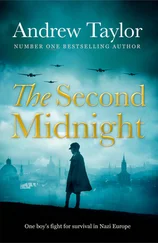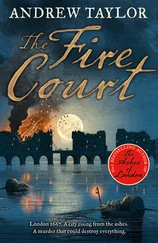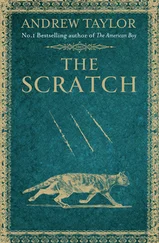1 ...6 7 8 10 11 12 ...21 There are still people who cook and serve food, however, and their leftovers lie around the kitchens. There is water from the pump that serves the scullery tap. On one occasion he drinks a pot of cold coffee. On another he finds a bottle of wine nearly half full. The wine is golden and silky sweet. It cloys in his mouth. He drinks it all. It makes him sick and then sends him to sleep: he has a bad dream in which blood drips on him from a black sky streaked with flickering yellow; and he wakes with a headache.
He spends hours watching the Rue du Bac through the cracks in the shutters in what used to be the steward’s room. He stares down at the hats and heads bobbing to and fro and listens to the grinding roar of wheels and the shouting. Sometimes he hears a popping sound in the distance which he thinks is musketry.
Charles encounters the Abbé Viré. The old man wanders restlessly about the halls and stairs, his slippers shuffling like falling plaster on the marble and the stone. His cassock is stained with old food.
In the old days, Maman would take him to the Abbé for instruction in religion and tuition in mathematics and the classical authors. When Charles was very young, he believed Father Viré to be the earthly form of God.
All this makes the priest’s present conduct unsettling in the extreme. The Abbé does not appear to recognize Charles. He usually ignores him completely. He carries a breviary as he walks and reads from it, muttering to himself.
Once, Father Viré comes across Charles trying to read a ten-day-old newspaper in a disused powder-closet. The old priest raises his hand and sketches a blessing over Charles’s head, murmuring the familiar words into the dusty air.
As for the Count de Quillon, he stays in his suite of private apartments beyond the grand salon. Monsieur Fournier comes and goes. When he sees Charles, he often stops to ask how he does and whether he needs anything. Charles does not answer.
‘All will be well soon,’ he says one morning. ‘You’ll see.’
But Charles knows that nothing will ever be well and that the only thing he will see is more of what he sees now. Still, it is good of Monsieur Fournier to tell kind lies.
Sometimes they ask him the questions again – Fournier, the Count and Dr Gohlis. Always the same ones. What happened on the night your mother died? Did you see who was there? What was said?
Say nothing. Not a word to anyone.
One day, a wagon comes into the main courtyard, where the weeds are advancing in ragged green lines along the cracks between the flagstones. Men bring packing cases and begin to put things in them – pictures, statues, clocks and carpets. Some of the clocks are still ticking. They are nailed up alive in their coffins.
The remaining servants, working in relays, bring trunks and valises from the attics. They fill them with books, papers and clothes. Two more wagons come down the lane at the back of the house with a guard of armed men. They are loaded with the heavier items. They go away during the night. So do more of the servants, and then the house is emptier than ever.
As the people and the objects seep away from the Hotel de Quillon, Charles notices how shabby everything is – the damp patches on the plaster in the grand salon where the old tapestries used to hang; the cracks that snake across the ornate ceiling of the ladies’ withdrawing room; the leak in the roof of the room next to his which, one rainy night, brings down the whole ceiling.
Charles does not like the nighttimes because sometimes he wets the bed. This often happens on the nights after they have asked him the questions.
When he wets the bed, he is beaten the following morning. He understands this. He has done wrong. Since the old woman disappeared, no one notices if he wets the bed so it no longer matters.
One night, Dr Gohlis comes into Charles’s room and wakes him from a deep sleep. He squeezes the boy’s chin between finger and thumb. He holds the candle so Charles can see his face, orange and gold in the light of the flame.
‘Remember my écorché boy?’ he says. ‘Are you going to be like him one day?’
Charles knows that the écorché boy is called Louis. He is kept in the sitting room that has been set aside for the doctor’s use at the Hotel de Quillon. The door is locked when the doctor is not there.
One morning, Charles watches the doctor leave. He sees him hide the key on the ledge of the lintel above the door. Now Charles can visit Louis.
Often he chooses the very early morning when few people are stirring and the doctor is unlikely to be there. The écorché boy stands beside the doctor’s desk. Charles examines him carefully and presses his own body to see if he is the same underneath, under all that skin. He thinks of conversations they might have and games they might play. He likes to touch Louis and wishes that Louis could touch him. Once he kisses Louis’s cheek and he has the impression that Louis’s face is slightly wet, as if he has been crying.
One day the key is not on the lintel. The door is locked. Dr Gohlis is not there.
Who is left? Charles thinks there are perhaps half a dozen servants, the old abbé and himself. He cannot remember when he last saw the Count or Monsieur Fournier or Louis.
What will happen to me, Charles wonders. Will they leave me quite alone?
Then comes the night when everything changes. Just before dawn, Dr Gohlis wakes Charles, makes him dress and takes him downstairs. An old servant waits with two small valises in the hall.
Charles wants to say: ‘Where are we going?’ He also wants to ask Dr Gohlis what has happened to Louis.
But of course he cannot speak. He must not speak.
Not a word to anyone.
‘Mr Savill – may I make known Mr Malbourne, my clerk?’ Rampton said, enunciating the words with precision because he was wearing a set of ivory teeth. ‘Mr Malbourne – Mr Savill.’
They bowed to each other. Malbourne was a slender man with delicate, well-formed features and the address of a gentleman. Savill had found him and Rampton at work in the study when he arrived. The clerk’s right arm was in a black-silk sling, though he removed it when it was necessary for him to write.
This was Savill’s second visit to Vardells, nearly a month after his first, prompted by a letter from Rampton. It was late September now, and the leaves were turning on the lime trees beside the drive.
‘Mr Malbourne has intelligence that relates to Mrs Savill’s son,’ Rampton said. ‘It appears that Charles has been brought to England.’ He gestured to his clerk that he should continue.
‘Charles is living in the country with a party of newly arrived émigrés,’ Malbourne said. ‘Fleeing the massacres. There has been quite a flood of them.’
‘Where are they?’
‘They have taken a house in Somersetshire a few miles beyond Bath. Charnwood Court in the village of Norbury. The émigrés are people of some position in the world. Have you heard of the Count de Quillon?’
‘The late minister?’
‘Precisely. Though he held the seals of office for no more than three or four weeks before he was forced to resign.’
‘He was the old king’s godson,’ Rampton said. ‘Some say it was a nearer connection still, through his mother, and that was why he was in such favour at Versailles when he was a young man. This king made him a Chevalier of St Louis. Not that it stopped him from dabbling with the Revolution when it suited his purpose.’
‘The point is, sir,’ Malbourne went on, ‘Monsieur de Quillon is altogether the grand gentleman. He is not an easy man to deal with. He is accustomed to having his own way, to moving in the great world.’
Читать дальше
